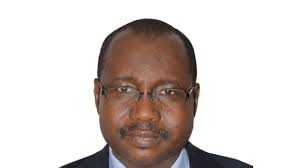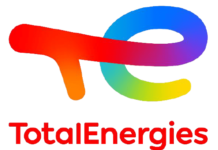
TCN expanding National grid capacity for optimal performance
Mr. Usman Gur Mohammed is the Managing Director /Chief Executive Officer, Transmission Company of Nigeria (TCN). Mohammed previously worked as Principal Power Utility Transformation Specialist in the AfDB’s Nigeria Country Department. In this interview with newsmen he spoke on the need for Discos torecapitalize their operations. He also reviewed his scorecard among others . Excepts
Some discos have been suspended from market operator administered market in recent weeks, how has their non-compliance to the rules affected the industry?
Anywhere there is no growth, there will be anarchy. Any organization or association that there is anarchy, there is no way the best can come out of such association. So complying with the rule is the most important. The market say to be at its best because people (operators) are not complying with the rules. They have signed an agreement that they are going to comply with the rules, so you cannot in the middle and say you cannot comply with the rules. That’s the reason we took a decision to enforce the rules. We would have taken that decision earlier than now but you know ‘he who goes to equity must go with clean hands’. So we have to show some level of performance given the historical background of TCN before we can try to enforce those rules. And that’s why we started enforcement and it is yielding result. People are complying and working according to the rules. But don’t forget, it is not just we started rules enforcement, if you remember in 2017 when we came in newly, Nigeria has never enforced the ‘Free Governor’ rule. What is a free governor? You know the industry is not like water where you can put tank and store it. You cannot store power; you can only generate what you can take. Even if your generation capacity is 20,000MW, your transmission capacity is 20,000MW and the distribution companies (discos) can only take 5000MW, it is only the 5000MW you can generate. You can’t generate more than that. Now, at any point in time, what is generated and what is demanded must equal. That is demand and supply must balance. If there is disequilibrium, you will have system instability. Out of balancing supply and demand, we have done it manually before. How do I mean? Somebody in LCC will call and say ‘run down, reduce your load’, that’s what we are doing before now.
In 2017, we wrote to the generators and we insist that they have to be on free governor. Free governor is what all generators have signed on and have agreed that they are going to comply with. It is in collection agreement signed between all generators and TCN. But it has never been applied. In free governor, all the machines will be put in a mode that if the discos reduce load, the generator can automatically reduce load by themselves without anybody calling them. In enforcing that, we have to shed some generators out of the grid. we restricted a particular generator to 200MW for three months, though there generation capacity is 600MW to force them to be on free governor. I am glad to tell you that largely all generators in Nigeria are now complying with the free governor policy. It is not easy, because they have to buy some equipment and install in their machine.
We also insisted that the discos have to comply with the market rules. You know we cannot take up the fight at the same time; it has to be one after the other. Having enforced the free governor policy, we have to enforce some market discipline too, especially those within our control.
Have you considered the effect of enforcing such rule on the people because when you suspend a disco from the market, people in its community will be in darkness?
Where we enforce the market rule, especially where we suspend a disco, suspension comes with some level of explanation. The market rule gives you power to disconnect the whole supply to that disco, we look at the feeder that supplies the offices of the disco and we disconnect that feeder. We don’t disconnect everybody, we are also Nigerians and we are mindful of the fact that we don’t people to feel bad about us. As we speak, no disco is under disconnection except Kano Disco. All others have complied with the rule and we have reconnected them. None of them even lasted for one week except Kano Disco. On Kano disco, we decided to reconnect on Thursday due to Sallah celebration but we will disconnect them after the Sallah. The feeders we disconnected in Kano also feeding other households, but the intention is to force them to comply with the market rule and do the right things.
Some discos are of the opinion that your policy is having adverse effects on their business, what is your take on this sir?
First of all, what we are doing in Nigeria is gaining the market. All the discos have universal licenses and not a restricted a license. It is not a license that says if you are in Lagos, leave Ajegunle out and serve only Apapa. No, they are supposed to serve everybody. Secondly, the aggregate technical collection and commercial (ATC&C) losses, based on the performance agreement they signed included poor people and rich people. To prioritize supply to some areas at the detriment of others does not make sense because their license is not restrictive.
We are not expanding grid based on hearsay. If a disco tells you what we are doing is affecting their business model, ask also that which study did they conduct that gave them that policy they are doing. We have conducted a credible study which is called 20-year Disco-Transmission Expansion Plan. The plan looks at the needs of the distribution companies and come up with a report that says this is how you should expand. Because most of the discos are not performing and are not even investing. To escape from their failure of lack of investment, they will say we are putting capacity where they don’t need it. We are not just putting capacity, we are also adding redundancy for electricity to be stable. Electricity stability requires what we called redundancy and the least you can is N-1 which means any place where they need 60KvA, you will give them 60KvA x 2 and that is what we are doing under the programme. There is nothing like we are giving supply to where they don’t need it. What is happening is that some of them are gaming the market. They refused to put prepaid meters in some places, supply them energy for few hours and charging them on filthy charges (estimated billing or crazy billing). All these claims that poor people don’t pay are all lies. The reality is that we have been gaming the market, people are frustrated and you when frustrated, they can use several means to punish us including refusing to pay, tapping the meters. There is no relationship between poverty and payment of electricity bill. What the poor needs is adequate power supply, meter and give him the choice to switch on/off as he pleases.
We organized a workshop for discos across west Africa, eight discos participated from Nigeria and all others discos from west Africa were in Abuja. They all came with their KPIs (Key Performance Index), they KPIs showed how much energy received and how much was converted to cash. Considering the fact that Nigeria is the only country that has liberalized its power sector, Nigerian discos are the worst performing discos in West Africa. Does this make sense? It doesn’t make sense.
The best performing utility is SONABEL of Burkina Faso. They are the most efficient. After the training, I visited Burkina Faso to find out how they achieved this. What I realized is that they don’t connect a house unless there is a meter which means they have meters available at all times for anyone that wants to connect. Why is it that we don’t have meters here? If you look at Abuja, Maitama where the rich lives is about 98 per cent metered while places where the poor live like Mararaba, you discover that under 20 per cent are metered. If the salary of a poor man is N50,000 and for any reason, he must consume electricity and he consumes N30,000 for that month, I can assure you that he will switch it on and off at appropriate time to ensure that he doesn’t spend more than N10,000 for the next month and that’s what we are saying.
What are your scorecards?
We have installed over 40 power transformers in less than two years, we expanded the grid capacity from 5000MW to 8100 MW as at December 2018 when we did the last simulation. You hear some associations saying that we are lying, but tell them to bring their own evidence that we are lying. We don’t just announce any figure, even as the Managing Director, unless it is validated by the system planning unit with credible evidence to show that this is what is happening. But when we have several associations, there will be distortions. These associations are formed to create distortions and protect their own people who paying them.
Under the normal rule, as a liberalized sector, we should have been seeing competition among them but you cannot hear that they are competing because the market is not at its best. Instead, they recruited some associations to defend them collectively. Does it make sense? NO.
We have removed 775 containers out of 830 containers that have been hanging in the ports for over 15 years. Some of them have been auctioned. We have expanded the grid by adding 3100MW and we have achieved frequency control that has not been achieved in the history of Nigeria.
Some mischief makers have said we invested $1.6661billion and there is nothing to show for it. Of course, there is evidence because system collapse is not as frequent as before. Abuja transmission project is the only one we have completed the procurement process which is $170million and it supposed to put five new substations in Abuja and a new supply route from Lafia to Abuja. The contract has been signed, advance payment has been made, LT has been opened but I can tell you no payment has been made apart from the advance payment. So it is wrong to say we have invested, but we have attracted money from donors and we are implementing. But we have not invested.
We have secured 280MW into our spinning reserve which was the first time spinning reserve has been created. Have we deployed? No, but we have submitted it to NERC (Nigeria Electricity Regulatory Commission) since December 2018 and till now, they have not approve it.
Some stakeholders have been calling for the privatization of the TCN, what is your take on this?
There are different model of transmission ownership across the world. There are models that are government-owned and there are some that are privately-owned. All of them will perform if they are run properly and implemented properly. But in Nigeria, we have a peculiar problem that you have to take into account before you privatize TCN. The problem is that it is very difficult to get a right of way (RoW), for 330KvA, you need 25meters distance and for 132KvA you will need 15meters. If you privatize TCN today, the owner may not get RoW because this is very difficult in Nigeria. Because it is still under government control, we have been able to partner most of the state governments where we are doing projects. If it is privately owned, the state government may charge arbitrarily because private business is for profit making. It is left for us as Nigerians to judge whether it is the right thing to do. Some of the economies that are similar to Nigeria including the POWER GRID of India, are performing very well. Power Grid of India has capacity of 320GW as at now and it is still government owned. Eskom is government owned, Grid World of Ghana is government owned, The Grid of Cote D’voire is still government owned. But if you put the right private sector people and you have the discipline to do the right thing, not that policy makers share the company to themselves as we witnessed in past, it is possible that it will work. But yiu have to look at those reasons that I mentioned.
What measure are you putting in place to eliminate transmission losses in the system?
Transmission loss is inevitable because if the loss is more than 8.05, we lose money. TCN loses money. It is our duty to ensure that we fix the transmission losses. Part of what we did to fix the transmission losses is that we restructured the grid metering department. Before, this department is controlled from the headquarters, we have now ceded the grid metering to control of regional managers. Inspectors from the headquarters visit the regions from time to time to inspect them to ensure they are doing the right thing.
We are also going to meter all our lines and all our substations and we are beginning with Lagos so that at any point in time, we will know who is contributing the highest losses to the system. We are starting with 200 meters for Lagos because Lagos has between 30 to 40 per cent of our transmission capacity. If we intervene in Lagos, we have intervened in about 30 to 40 per cent. We have started Automatic Meter Reading (AMR). Human interface created a lot of problems that will give us credible data to monitor our losses. As at now, we are far below 8.05.
What are the options of funding available for your projects?
The best option should be our Internally Generated Revenue (IGR), but unfortunately it is not so because of our tariff. When we came in 2017, we made a case for tariff review, and NERC agreed that our tariff is less than what we are supposed to get. Unfortunately, they could not review the tariff. Before now, we are getting less than 30 per cent of our tariff and this is not sustainable to raise money in the industry for investment. We don’t get appropriation for our operations. Appropriations are for those contracts included in the National Assembly budget which are mostly tied to constituencies of members of the national assembly. We need sustainable money to finance the network. The only option that we have is to go multinational donors because they have long gestation period. Most times, they have five year monitorium period and 20 years repayment period. That would give us enough time to be able to do other development activities that will make the TCN to be able to pay this money by itself. And that is why we have gone to the multinational donors and we have raised $1.661billion. Those are monies are World Bank $496million to be used for existing substation lines, targeting brownfield projects. In terms of implementation, we have completed pre-qualification for the projects 1&2, project 3 is still at prequalification. We have not touched the money yet.
The next project is Abuja scheme and it is the only one that we have signed the agreement for the contract. The contract is effective, it is $170million sponsored by AFD (French Development Agency).
You have stressed the need for the discos to recapitalize, and it doesn’t seem they have the capacity to do this. Do you think the federal government has what it takes to take back the asset from them? System collapse is still a major issue, what are you doing to address the challenge?
We have never told anyone that system collapse will stop because there are things you have to put in place to stop the system collapse. The decision to stabilize the grid is a journey. It is a jurney that we have started and it is better than before right now. For instance, we need to have the spinning reserve. This is a must to stabilize the grid, up till now, we don’t have the spinning reserve. As at this stage, the spinning reserve that we supposed to have is 10 per cent. If the average generation is 4000MW, the spinning reserve supposed to be 400MW. What we have procured is only 260MW which is not adequate. Even the inadequate one has not been deployed. The second problem is that we need to have an international SCADA so that we have register of events that will show whoever misbehave on the grid and can adequately punish. Our SCADA cannot see the entire system as at now, it can see some parts but it cannot see the entire grid. We are working very hard to ensure that this time around we succeed in installing the SCADA. We don’t want to rush so that we won’t repeat the same mistake we did in the past. All the things that will make us not to fail, we are doing them. And the generation is low today because that is what the discos are demanding. We can only transmit what the discos are demanding.
During raining season, the discos will drop load and it will be very difficult to tell the generators to drop load. There was a time I ordered the grid should be collapsed. As that time, if we didn’t collapse the grid and stay for additional 10 minutes, we are going to have fire outbreak all over the country. If we didn’t collapse it, we will have high voltage all over the place and you will have terminal equipment that will be shut down when they shut down, they will cause fire which can touch some of the bushes and all the transformers will catch fire. All over the world, there is no grid like this. 421 injection substations , 139 hybrid of injection substations and no injection substation, 177 feeders (interfaces) with no single injection substation which means fault in someone’s house can go to transmission and hit our substations.
Investment in TCN is not sustainable unless there is corresponding investment in the distribution. That’s why we are preaching for recapitalization of the discos. Government cannot be passive anymore. Government should bring their own 60 per cent and this money should be defined not just money that comes from commercial banks that are short term, they should be long term investment.
We also need to have regulatory certainty. No investor will come in who cannot recover his money. On whether the government should take over the discos, I disagree. If you implemented right thing wrongly, you should right that wrong instead of cancelling it. Because when you cancel it, you get it wrong completely. What we implemented here is what Germany is using and it is working. What we need is to correct it and recapitalization can correct it. Generation is not our problem, many people wanted to generate but we were not connecting them to the grid. The issue is that when you let them and the market cannot take, it becomes a liability on Nigeria.
So, if we cancel privatization, we are going to have a contingent liability which will send a signal to the whole world that Nigeria is not private sector friendly. Secondly, the government does not have sustainable money to invest in the power sector. When you cancel, you will return the money of the investor, and you are going to be paying 20 per cent for five years.
It is time to tell the people the truth; we have to pay for electricity. All of us are paying more than what we are supposed to be paying because all of us has generator in our house. So if the money be increased by 20 to 30 per cent so that we have stable electricity, why not; we need to have tariff that can sustain investment.
from Champion newspapers




















